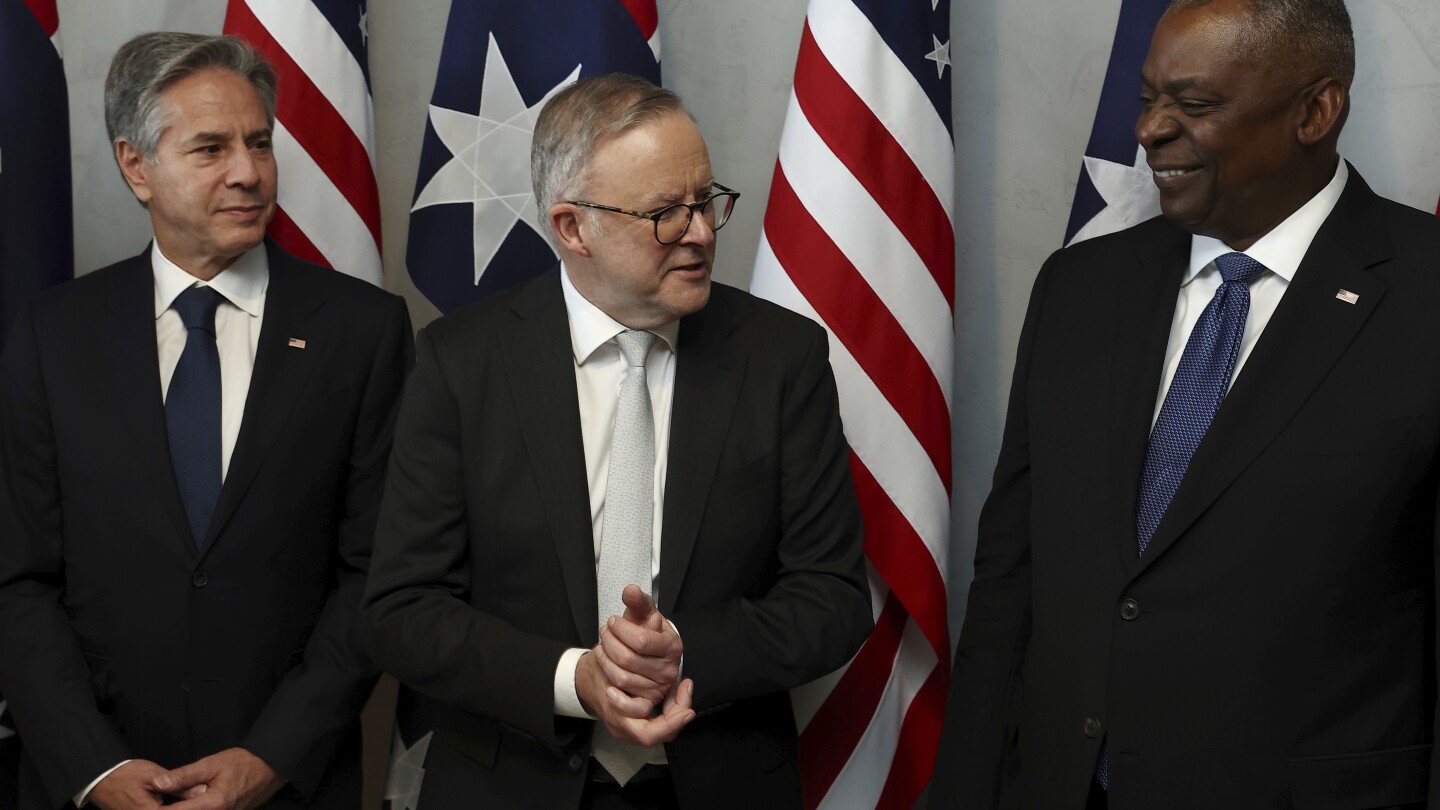CANBERRA, Australia (AP) — Australian Prime Minister Anthony Albanese said Friday he was confident of securing bipartisan political support in the United States for a deal to provide his country with submarines powered by U.S. nuclear technology.
The AUKUS partnership — an acronym for Australia, the United Kingdom and the United States — is being discussed by U.S. Defense Secretary Lloyd Austin and U.S. Secretary of State Antony Blinken in meetings with Albanese and other Australian officials in Brisbane on Friday and Saturday.
Under the deal, Australia will buy three Virginia-class submarines from the United States and build five of a new AUKUS-class submarine in cooperation with Britain.
Australian media have focused on a letter signed by more than 20 Republican lawmakers to President Joe Biden that warned the deal would “unacceptably weaken the U.S. fleet” without a plan to boost U.S. submarine production.
Albanese said he remained “very confident” that the United States would deliver the three submarines.
The prime minister said he’d been reassured by discussions he had with Republicans and Democrats earlier in July at a NATO summit in Lithuania.
“What struck me was their unanimous support for AUKUS, their unanimous support for the relationship between the Australia and United States,” Albanese told reporters in Brisbane.
Austin and Blinken arrived in Brisbane late Thursday ahead of annual bilateral meetings with their Australian counterparts: Defense Minister Richard Marles and Foreign Minister Penny Wong.
Marles said the AUKUS program was on track.
“Congress can be a complicated place as legislation makes its way through it, but actually we’re encouraged by how quickly it is going through it and we are expecting that there will be lots of discussions on the way through,” Marles said.
“Fundamentally, we have reached an agreement with the Biden administration about how Australia acquires the nuclear-powered submarine capability and we’re proceeding along that path with pace,” he added.
Australia understood there was “pressure on the American industrial base” and would contribute to submarine production, Marles said. The AUKUS deal is forecast to cost Australia up to 368 billion Australian dollars ($246 billion) over 30 years.
Albanese later publicly welcomed Austin and Blinken at a media event before the three began a meeting with Marles, Wong, U.S. Ambassador to Australia Caroline Kennedy and Australian Ambassador to the United States Kevin Rudd, a former prime minister.
“The relationship between Australia and the United States has never been stronger,” Albanese told the two visitors. The U.S. and Australia were working together to promote security, stability and prosperity in the region, Albanese said.
Albanese is planning state visits to both the United States and China before the end of the year.
The sharing of U.S. nuclear secrets with Australia takes that bilateral relationship to a new level, while Australia’s icy relationship with Beijing was thawing since a change of Australian government at elections last year.

